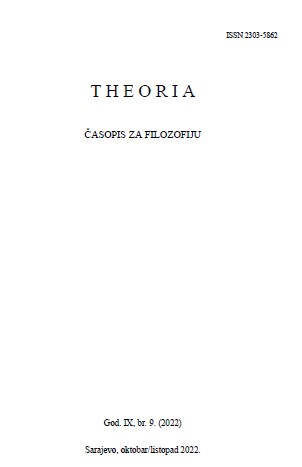IDEJA EVROPE I SLOBODA U PANOPTIKONU POSTISTINE EVROPSKE UNIJE
THE IDEA OF EUROPE AND FREEDOM IN THE PANOPTICON OF THE EUROPEAN UNION POST-TRUTH
Author(s): Mišo KulićSubject(s): Political Philosophy, Philosophy of Law, Culture and social structure , EU-Accession / EU-DEvelopment, Social Norms / Social Control
Published by: Filozofsko društvo THEORIA
Keywords: idea of Europe; cultural unity of Europe; idea of multiculturalism; European Union of universal human values; constitutional patriotism; neoliberalism; market absolutization; social control;
Summary/Abstract: The idea of a united Europe, that is, the idea of the reasons on which such a Europe would be built, has never been unambiguous. However, what has always stood out as truly unique is most often found in the common cultural foundation given in Greek philosophy, Roman law, medieval Christianity, the Renaissance, and the political ideas of modern democracy: brotherhood, freedom, and equality of all people without distinction. Although, views on this cultural unifying foundation were and still remain different, the fact is that the reference to this foundation was primarily conditioned by the geopolitical reasons for the survival of Europe between the two great powers, the United States and Russia. In this respect, the idea of Europe and the market reasons that led to the unification of Europe in the form of the European Union have never been, and could not be, the same thing for which a common cultural foundation could indeed be a real reason for unification. Considering the fact that in the geographical and cultural sense Russia is a part of Europe but not in the European Union, just as the USA in the political and cultural sense originates from the tradition of Europe, so in that respect they could not and should not be considered that force which would like to jeopardize some future survival of a non-united Europe. The reasons are obviously economic, market, ie geopolitical, and not cultural in nature. Moreover, it could rightly be said today that the growing totalitarian, neoliberal, market tendencies have called into question the very cultural foundation on which the idea of the unity of Europe was invoked. Therefore, the intention of this text is contained in the idea of Europe in its later ideological absolutization of the market and thus point to market interests as real reasons for the emergence of powerful tendencies to suspend humanistic, critical and free thinking in the reality of the European Union. At the same time, there are reasons why the fundamental humanistic notions that make up the cultural tradition of a free and democratic Europe have been perverted, but also reasons for the expressed fear of Europe moving towards a new society of complete technological and bureaucratic control.
Journal: Theoria časopis za filozofiju
- Issue Year: IX/2022
- Issue No: 9
- Page Range: 6-28
- Page Count: 23
- Language: Bosnian

